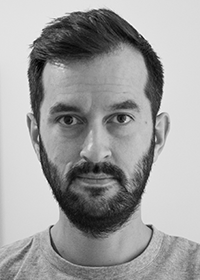Dr Ashley Dhanani shares his experience of providing consultancy on urban mobility to Transport for London, the Greater London Authority and the UK’s Department for Transport.
The value of research to external organisations
Through a number of related consultancy projects, I’ve been able to help local authorities understand the needs of pedestrians in their towns and cities and design infrastructure to accommodate them.
This consultancy built on my research carried out as part of the Street Mobility and Network Accessibility project and the Urban Dynamics Lab project. Through this research, I’ve developed a tool which can be used to identify the most important roads and connections for people on foot, and where there may be conflicts between pedestrians and motorised traffic.
After working with Transport for London and the Greater London Authority, the Department for Transport contacted me to explore if my work could also be used in projects they were funding across the country.
This most recent consultancy project involved me travelling around the country, working with six different local authorities to develop infrastructure plans focused on active travel, with my input specifically on walking.
Helping make consultancy stress free
When I first started consulting I really didn’t have a clue what to do or how to go about it and was pointed in the direction of UCL Consultants.
They were incredibly helpful in terms of drawing up the contractual work, communications around the contract, and rates and costing – they knew market rates, something that I didn’t really know anything about. Plus they take care of all the time-consuming but essential things like indemnity insurance and billing and payments.
The benefits of being a consultant
The single biggest benefit to consultancy work is getting your research out into the real world and generating that all important impact, it’s a very good way to do that.
Beyond that, in terms of career development, consultancy helps you build up links outside of academia which is very valuable. Also it helps internally, if you do a project which supports your department’s academic or financial objectives, it’s recognised as an output from your research.
Advice for academics considering consultancy
I would urge anyone considering consultancy to just give it a go if the opportunity arises. I think mixing research and consultancy can be complementary.
If you’re just doing academic research you’re not exposed to how things work in the real world. One thing you come to realise when you work with various public and private sector organisations is how important all the processes are that underpin things getting done and the politics of it all. You don’t appreciate that from the outside if you’re simply looking at the outputs from various organisations.
Links
Find out more about:
 Close
Close



